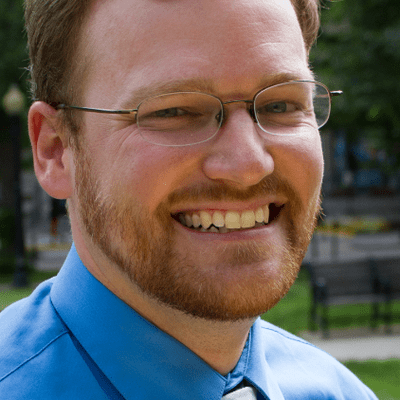Introduction
Groups hoping to help Democrats pick up a House seat in November have spent more than $1 million aimed at boosting their favorite candidate and knocking off an independent challenger.
The race is for California’s 26th Congressional District in the suburbs of Los Angeles. The candidate that has attracted all the attention is Democrat-turned-Republican-turned-independent Linda Parks, a Ventura County supervisor and former mayor of Thousand Oaks.
She is on the ballot with Democratic Assemblywoman Julia Brownley, Republican California state Sen. Tony Strickland and several other candidates.
The unusual ballot mix is thanks to a measure passed by California voters in 2010 that pits all candidates against each other regardless of party in the primary. The “jungle primary” or “top-two primary” will put the top two vote getters in the general election in November.
It is also a hotly contested race because it’s an open seat. Incumbent GOP Rep. Elton Gallegly announced in January that he would not seek re-election. Democrats view it as one of their best pick-up opportunities — assuming they have a candidate on the ballot in November.
Parks, who has helped pass two local campaign finance laws in her career, says she doesn’t want to be beholden to special interests, and she blames the Democratic Party, which has put her in its sights, for the negative tone of the race.
“We haven’t had the Democratic Party resort to smear campaigns and lying in our county before,” she said.
Parks says she only takes contributions from individuals, unlike her opponents who have each relied on political action committees for about 20 percent to 25 percent of their funds.
Parks’ candidacy has spurred an onslaught of mailers, TV ads and phone calls from Democratic groups and their allies.
Records show four outside groups, including two super PACs, have collectively spent more than $1 million on independent expenditures to help Brownley.
The two pro-Brownley super PACs in the race are the “House Majority PAC,” whose primary purpose is to “win back the House majority for Democrats,” and “Women Vote,” a project of EMILY’s List, which works to elect Democratic women supportive of abortion rights.
House Majority PAC alone is responsible for two-thirds of the money spent by outside groups in the race, shelling out more than $712,000 on independent expenditures that have either supported Brownley or attacked Parks.
Women Vote, meanwhile, has spent about $100,000 on pro-Brownley mailings. And two nonprofit, “social welfare” groups organized under section 501(c)(4) of the U.S. tax code — the League of Conservation Voters and the California League of Conservation Voters — have each spent roughly the same amount on advertisements touting Brownley.
Herbert Gooch, a professor of political science at California Lutheran University in Thousand Oaks, says the outside assistance has been “crucial” for Brownley.
“It’s an unusual situation,” Gooch said. “Parks has a lot of local ID.”
Just one super PAC has been actively supporting Parks, a group called “icPurple, Inc.,” which was launched in April under the name “Independent Leaders.”
icPurple has spent more than $52,000 on TV and online ads praising Parks, one of which features kids arguing about whether to paint their tree house red or blue. In the end, one kid decides to blend the paints together and paint the tree house purple instead.
“Sometimes it takes an independent leader to get us back on track,” the ad says. “If you’re tired of partisan politics, vote Linda Parks for Congress. She’s not a Democrat. She’s not a Republican. She’s an American.”
According to the Associated Press, Ted Waitt, the billionaire philanthropist and co-founder of computer manufacturer Gateway, has provided $300,000 in seed money for the new super PAC, which has also endorsed independent Chad Condit in California’s 10th Congressional District and former Maine Gov. Angus King, who is running for the U.S. Senate as an independent.
For her part, Parks says she would prefer to win without assistance from super PACs.
“I don’t support super PACs,” she said. “I don’t think I need that help.”
Yet Gooch, of California Lutheran University, says that super PACs may be the only way for Parks to be competitive in the fall, should she finish ahead of Brownley Tuesday.
Records show that the Republican, Tony Strickland, has raised more than $1 million — more campaign cash than any other candidate in the race. Parks has only raised about $223,000, including nearly $37,000 of her own money, while Brownley has raised about $617,000.
“Strickland is likely to steamroll her because of the money he’s raised,” Gooch predicted.
“He’s well-connected and will have as much money as he needs,” he continued. “She’d have to find some sort of super PAC.”
Jacob James, a spokesman for icPurple, would not commit to whether the group would spend money on Parks’ behalf during the general election, should she finish in the top two in the primary. Folllowing the election, he said, the super PAC would be “analyzing all results and considering next steps.”
Brownley’s campaign did not immediately respond to a request for comment.
Read more in Money and Democracy
Money and Democracy
Nonprofits outspent super PACs in 2010, trend may continue
Secret donors underwrite attack ads
Money and Democracy
Super PACs play major role in California House contests
Tuesday’s contests a ‘dry run’ for outside spending ahead of general election

Join the conversation
Show Comments